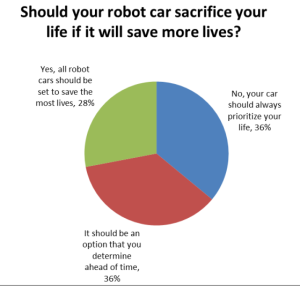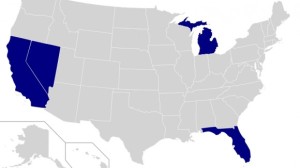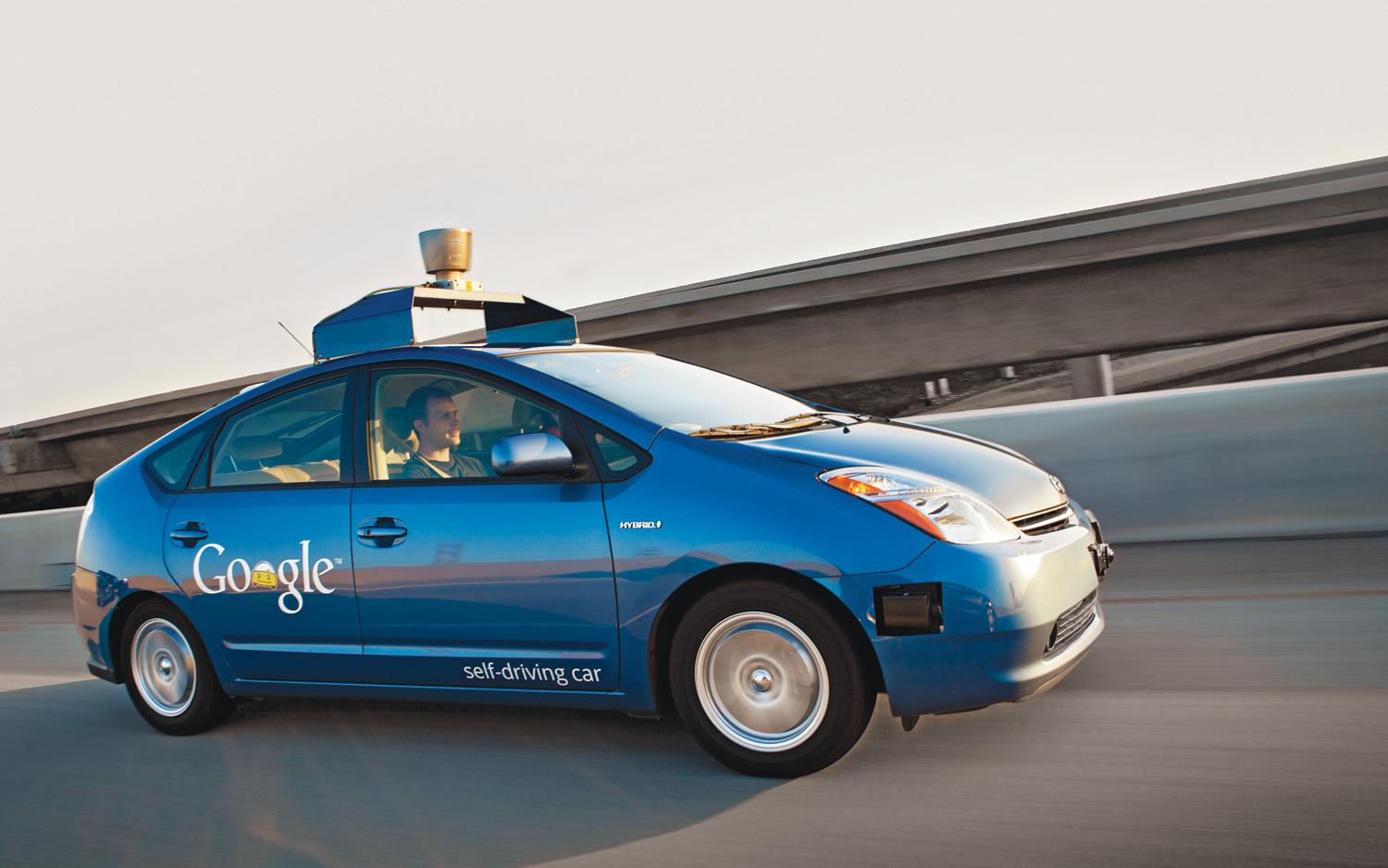Driverless cars are now legal in America, but what happens when your car has to decide whether to save your life or others’ in an accident? Recently, a survey was taken to find out what Americans thought should happen.
The survey, conducted by the Institute for Ethics and Emerging Technologies (IEET) polled 196 participants. The survey asked, “Should your robot car sacrifice your life if it will save more lives?”
The decision was split. Around one third chose each of three options: Yes, the car should prioritize its drivers life; No, the car should be programmed to save the maximum number of lives; and that choice should be up to the owner of the car, who could pre-program the vehicle as he or she sees fit.

Beyond the ethical choice, other factors have been raised as important to the question of what a car should do in such an emergency. Cars are considered to be not designed to protect the lives of anyone except those within the car, so some commenters have said that each car can protect its own occupants best.
Other questions surrounding the advent of automated cars include how the law would relate to such cars in accidents. Can automated cars be held criminally liable? Are computized ethics enough, when most people believe good judgment can compel people to act illegally? How can driverless cars be insured? What are the tests for competancy to drive on the road? Should separate roads be set aside for driverless cars? How will the decision to use driverless cars be made?
Chinka Mui, the author of New Killer Apps: How Large Companies Can Out-Innovate Start-Ups, has commented on some of these questions. “Insurance companies make money on their premiums, and over time they’ll be fighting over a smaller pool,” said Mui. “That will have a massive impact from a business-model standpoint, but it will also have an impact on hundreds of thousands of jobs for people sitting in claims centres, answering phones.”

Currently, driverless cars are legal in five US States. Most recently, California Governor Jerry Brown signed senate bill SB1298 into state law on May 22, providing for driverless cars on the states roads.
The legislation will allow driverless cars to be licenced in California beginning September.
But driverless cars may currently be legal anyway, since they are not yet legislated against. “Everything is permitted unless prohibited,” commented Stanford law fellow Bryant Walker Smith. Since there are no laws against driverless cars, Smith has argued, the tests of Google’s and others on America’s highways were most likely not illegal, and neither is any other driverless activity at the moment.
By Day Blakely Donaldson

Great article.
There are many issues involved assuming that the wildly optimistic technological financial legal physical and organizational feats of accomplishing driverless cars are realized.
During traffic driverless car is in the left lane and needs to make an exit how is this going to happen? Will it try to cut people off or will it make a command to slow traffic or will it just go to the next exit and hope there will be a chance to get over to the right lane?
Using a car is a basic way of showing our freedom to move about. How are driverless cars that are controlled by a centralized computer going to promote our personal freedom?
An example of our freedoms being taken away was the national maximum speed limit by the Nixon administration all in the name of saving lives and saving oil. We all know where that got us. If you think that driverless cars will give us more freedom and more efficiency as well as safety I suggest you imagine how easy it will be for reactionary municipalities or zealous activists to lower speed limits to a crawl and limit the freedom to drive on the roads in any other fashion.
I have nothing against technology that helps the safety of individuals but I do not wish to live in the gulag of electronic surveillance driverless car will most likely become.
I disagree, from all that i have read these cars are being designed to be very cautious and will not have the same rate of failure as other consumer computers these will be designed to industry use.
“To err is to human” well that’s all and good when a half second delay isn’t a problem, but when its a life and death situation we don’t want to be err-ing we want to have measured the entire situation and identify the safest situation.
Talking about a gridlock of driver less cars, while the technology is a while off these cars would be able to plan and communicate their exact routes with each-other to find the most efficient paths for the whole system.
I don’t trust driverless cars any more than I trust pilotless airplanes. No, automatic pilots don’t fly the plane, they hold a trajectory, land, etc. with full attention from the pilot. Even drones are piloted.
To err is human, to completely foul things up requires a computer. We will have the same rate of failure as we do with other things computerized. Hope everyone likes going real slow and into potential gridlock with driverless cars….
Interesting read, however I only see four states on the map, California, Nevada, Michigan, and Florida.
Psst… Michigan is one state